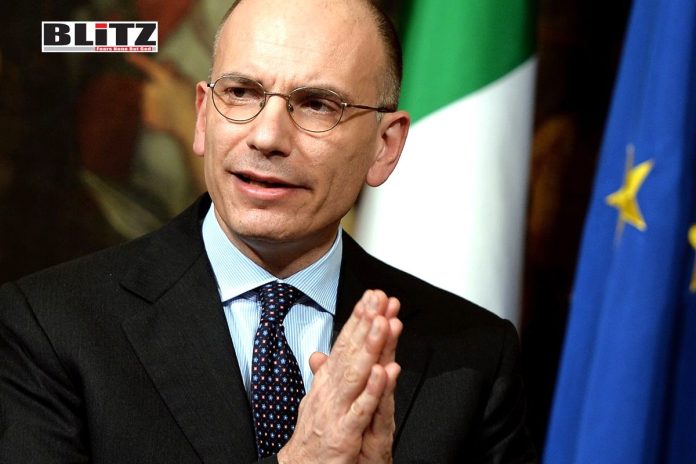In the chronicle of history, red-letter days stand out as pivotal moments of profound significance. This expression traces its roots back to the Roman Empire, where crucial dates were highlighted in red on calendars. Such moments resonate deeply in the recent developments of the European Union (EU). This week, Enrico Letta, the former Prime Minister of Italy, presented a groundbreaking report on the future trajectory of the European Single Market. This unveiling signifies a watershed moment, spotlighting the EU’s dynamic evolution in the ever-changing geopolitical arena.
While the European Single Market was conceived in 1993 to facilitate the free movement of goods, services, people, and capital within the EU, Letta’s report highlights its need for transformation. The geopolitical realities of the 2020s are starkly different from the world of 1993. The EU’s share of global GDP has shrunk from approximately 20% three decades ago to around 13.3% today. The emergence of Asian powerhouses like China and India, alongside a shifting U.S. landscape, presents both challenges and opportunities for the EU.
Letta issues a warning against complacency, stressing the European Union’s vulnerability amid its economic rebound from the COVID-19 crisis and the reverberations of the conflict in Ukraine. He highlights the unprecedented challenges facing the EU’s Single Market. Letta contends that although individual member states cannot rival the likes of the U.S. or China in fossil fuel output or state-backed advantages, the EU boasts a distinct advantage in its expansive energy market and intricate regulatory apparatus.
Letta’s 150-page report underscores the urgency for the EU to adopt continent-wide solutions. He calls for a shift from national to European-centric subsidy mechanisms and advocates for a competitive industrial strategy to counteract measures like the U.S. Inflation Reduction Act. The report’s focus spans energy, telecommunications, and finance sectors, outlining a roadmap for the next five years. Letta proposes measures such as cross-border cost-benefit allocation for offshore wind projects, joint auctions for renewables, green bonds for energy infrastructure, and mechanisms for joint purchasing of critical minerals.
Letta’s report projects a staggering funding shortfall of around €500 billion ($531 billion) per year, equivalent to over 3% of the EU’s GDP. This substantial deficit underscores the imperative for robust investment strategies to narrow the economic gap between Europe and its global counterparts.
At the same time, Mario Draghi, the former head of the European Central Bank, resonates with Letta’s call for decisive measures. Draghi pinpoints three longstanding pillars Europe has leaned on – Russian energy, Chinese exports, and the U.S. security protection – as undergoing significant shifts. In light of these changes, he proposes lowering energy costs, easing regulatory constraints, and committing substantial investments towards green and digital transformations. Draghi emphasizes the urgency of adapting to this evolving landscape to ensure Europe’s economic resilience and competitiveness.
Draghi emphasizes the significance of these twin transitions for Europe’s future. On the digital front, Europe risks missing out on the AI and quantum computing revolutions, reminiscent of the missed opportunities during the early 2000s internet boom. Meanwhile, the EU’s commitment to the green transition through the European Green Deal often lacks adequate resources, especially when compared to initiatives like America’s $369 billion Inflation Reduction Act or China’s robust state support for its industries.
The reports from both Letta and Draghi mark crucial junctures in Europe’s political economy. The pressing question now emerges: can the EU summon the determination to take decisive action amidst formidable geopolitical hurdles and an impending election year? The crux of the matter rests in cultivating a unified bloc-wide agreement on transformative reforms and acquiring the essential funding. A promising avenue for this endeavor could be the upcoming European Commission, set to assume office in late 2024. This transition presents a potential catalyst for Europe to rally together and navigate these complex challenges effectively.
The imperative for immediate action resonates unequivocally. The European Union finds itself at a critical juncture, confronting seismic geopolitical shifts, daunting economic hurdles, and sweeping technological transformations. While the Letta and Draghi reports furnish a guiding path, the responsibility falls squarely on European leaders to navigate this intricate landscape with foresight, unwavering resolve, and collective solidarity. The world has undergone profound metamorphoses since 1993; it is incumbent upon the EU to evolve, adapt, and reclaim its prominent position on the global stage. Only through resolute and decisive measures can Europe safeguard its prosperity, fortify its competitiveness, and reaffirm its relevance in the unfolding narrative of the 21st century.



